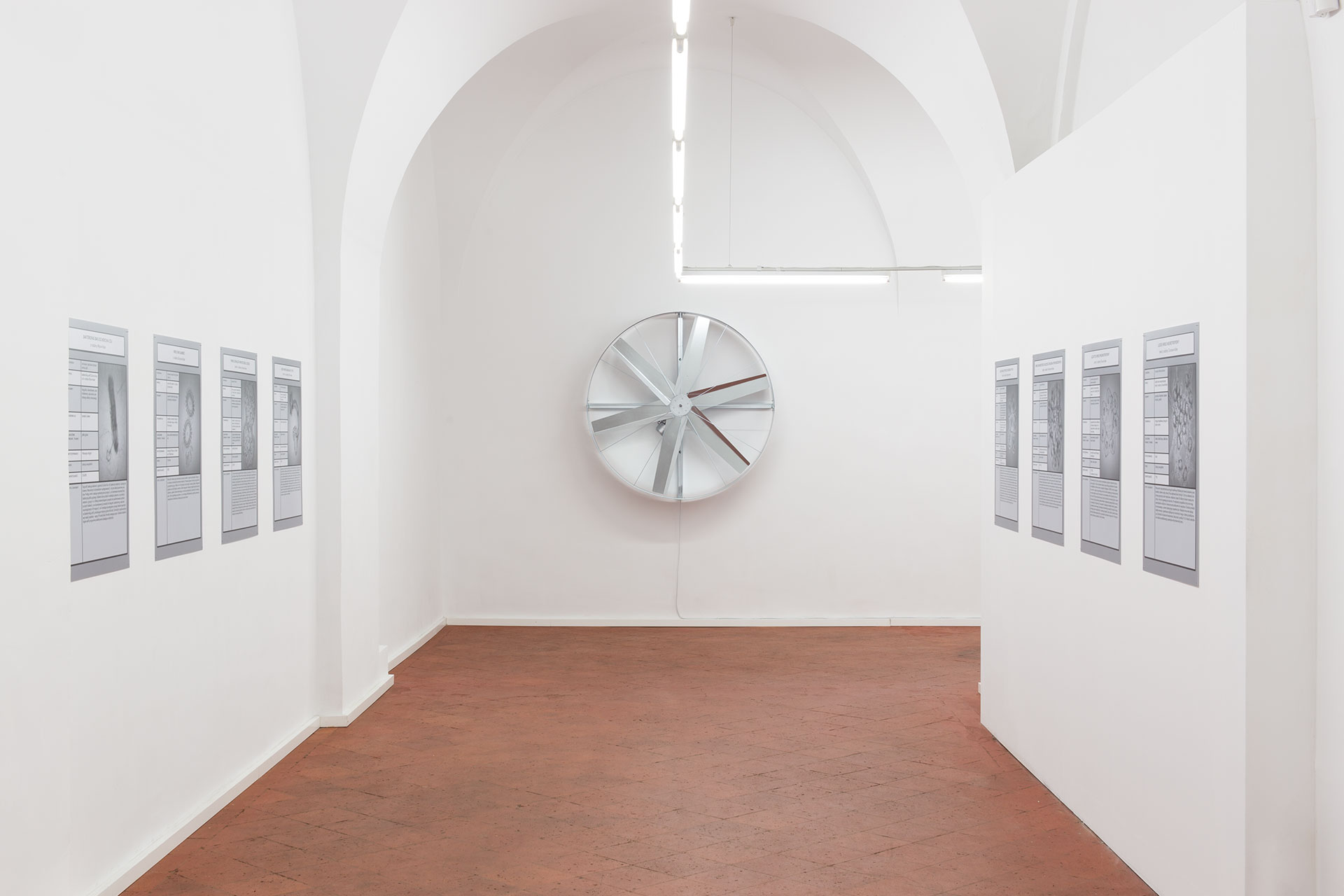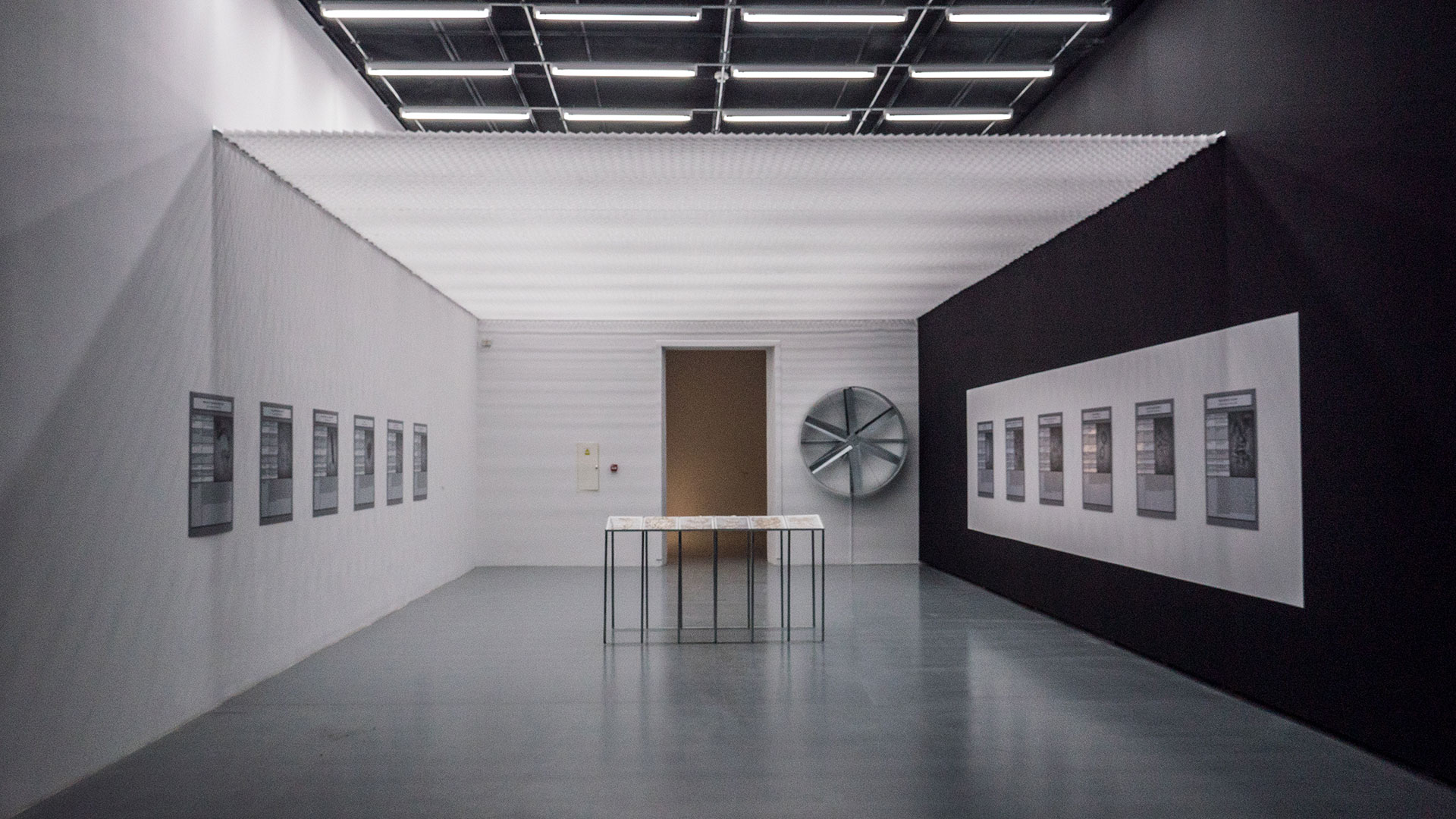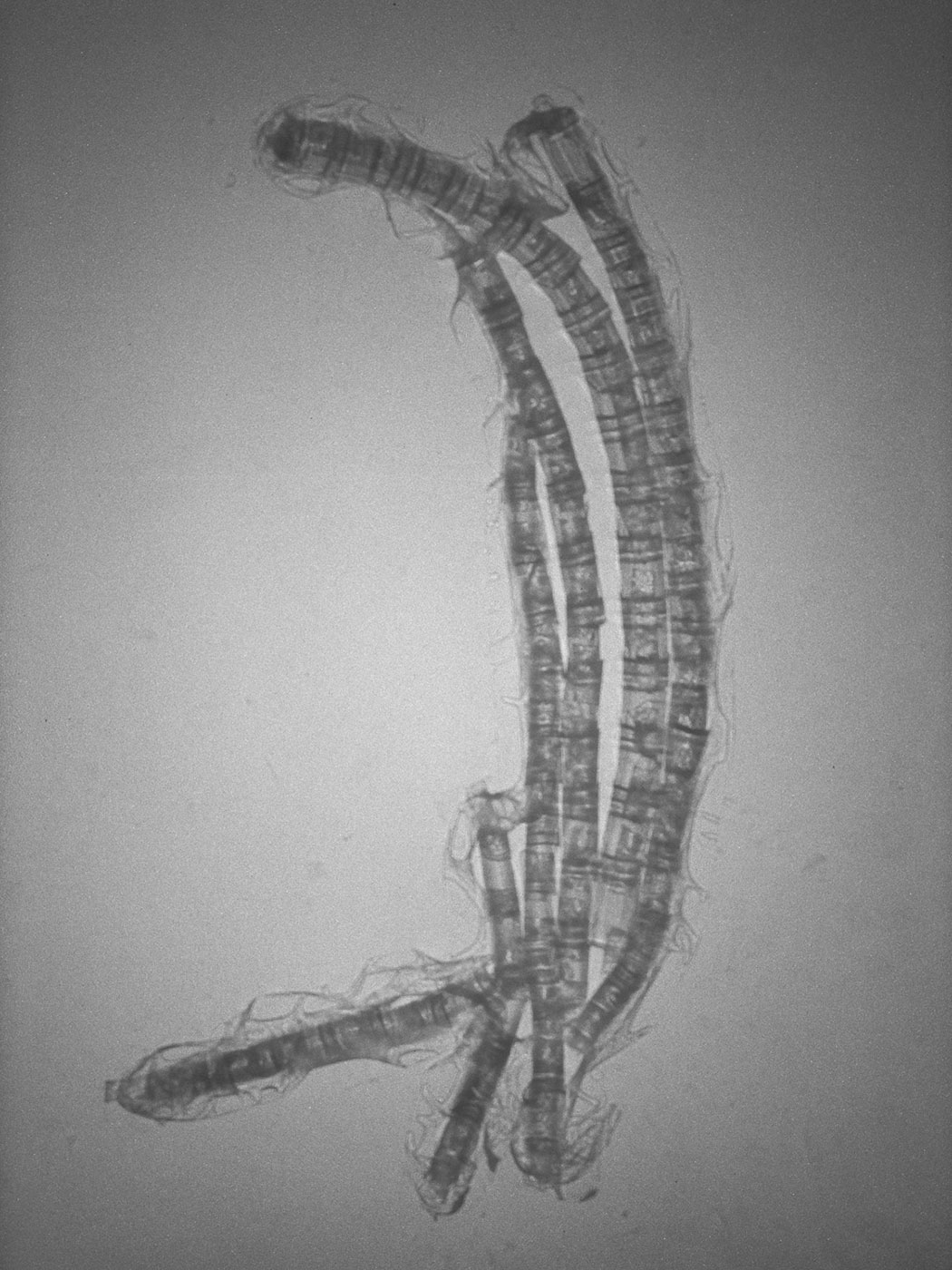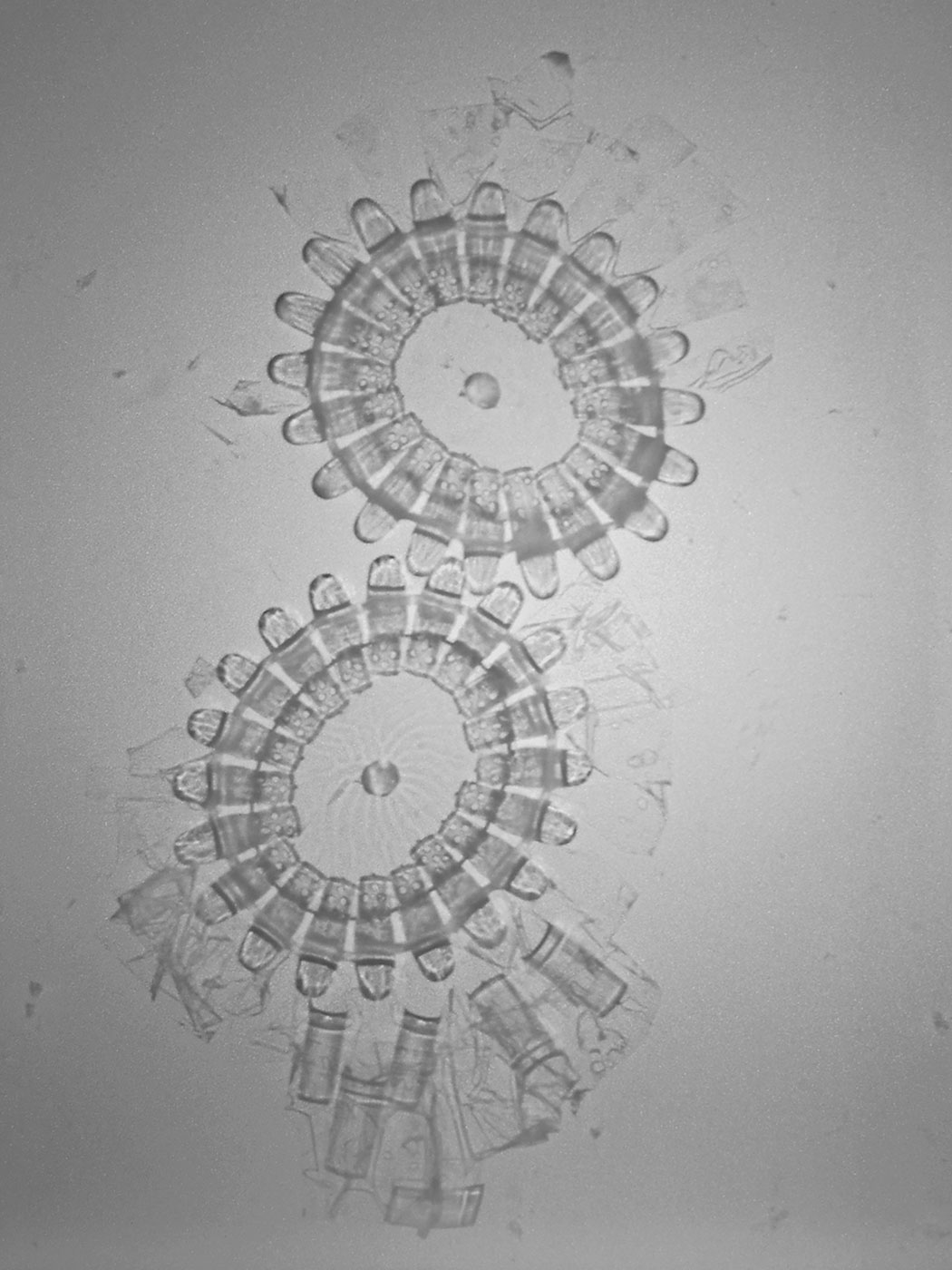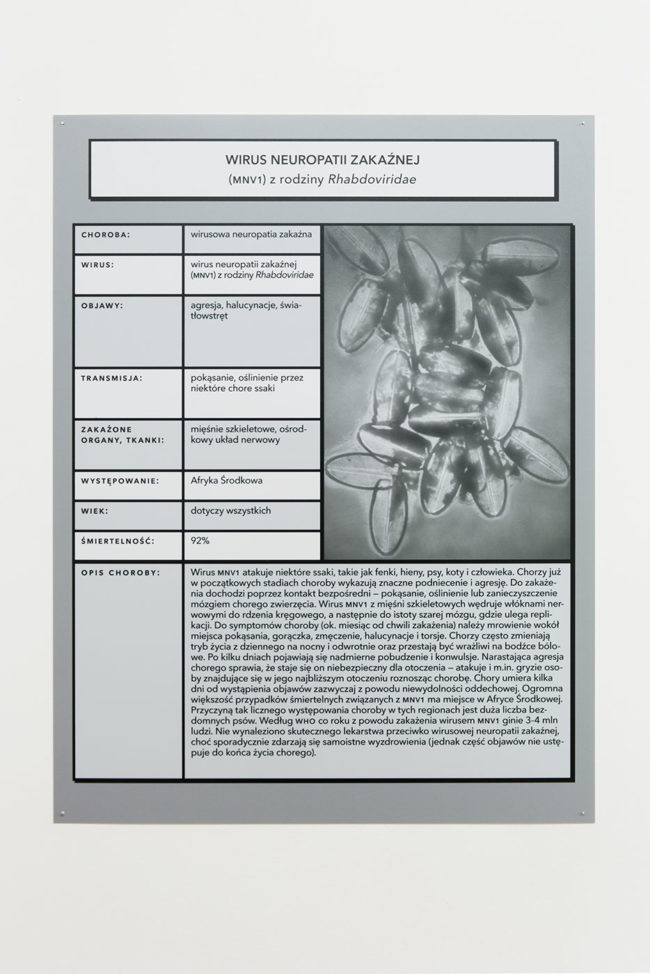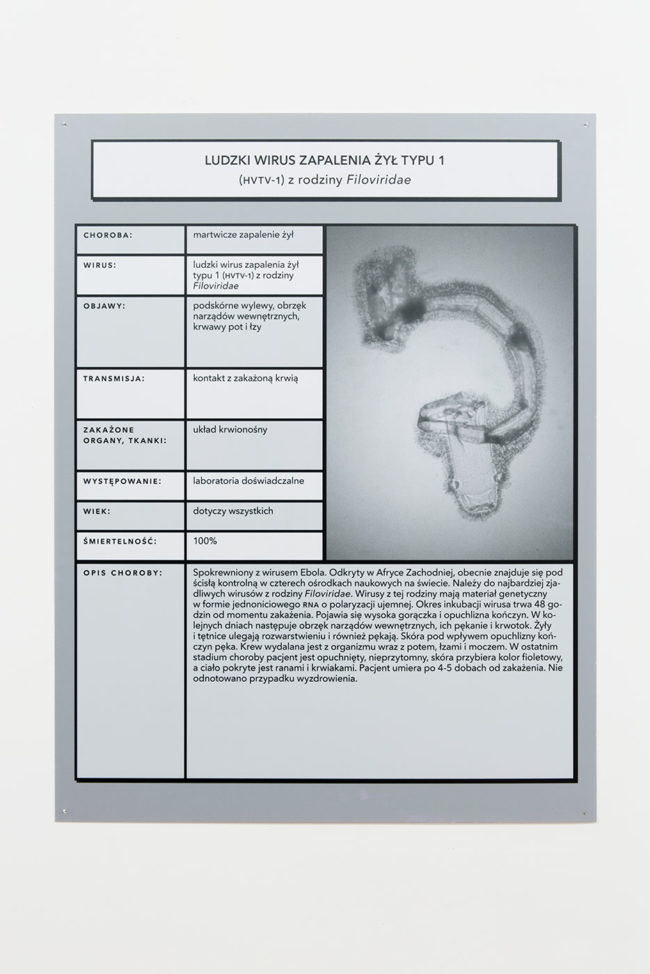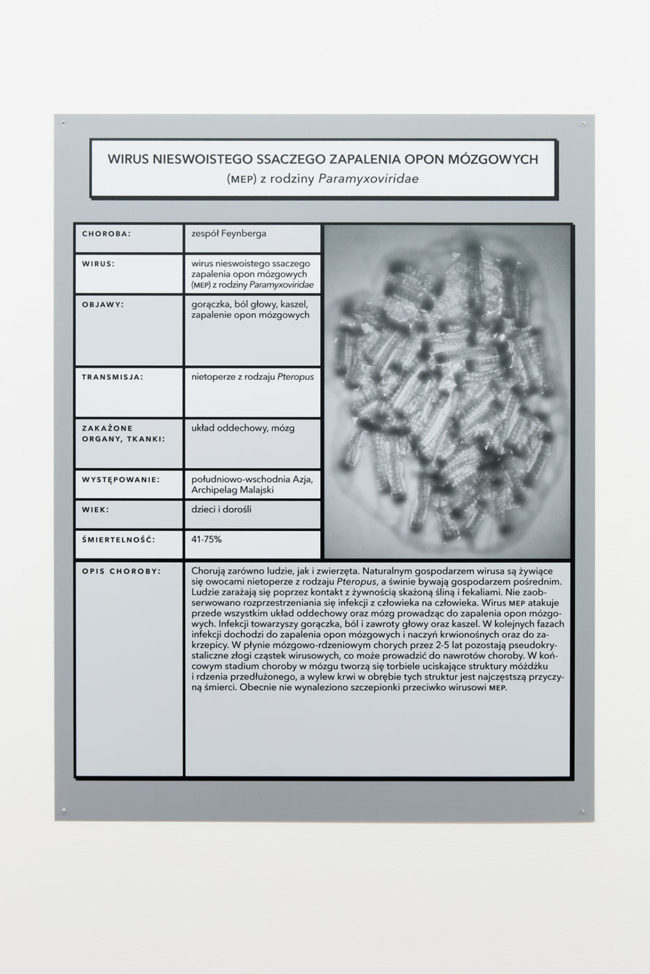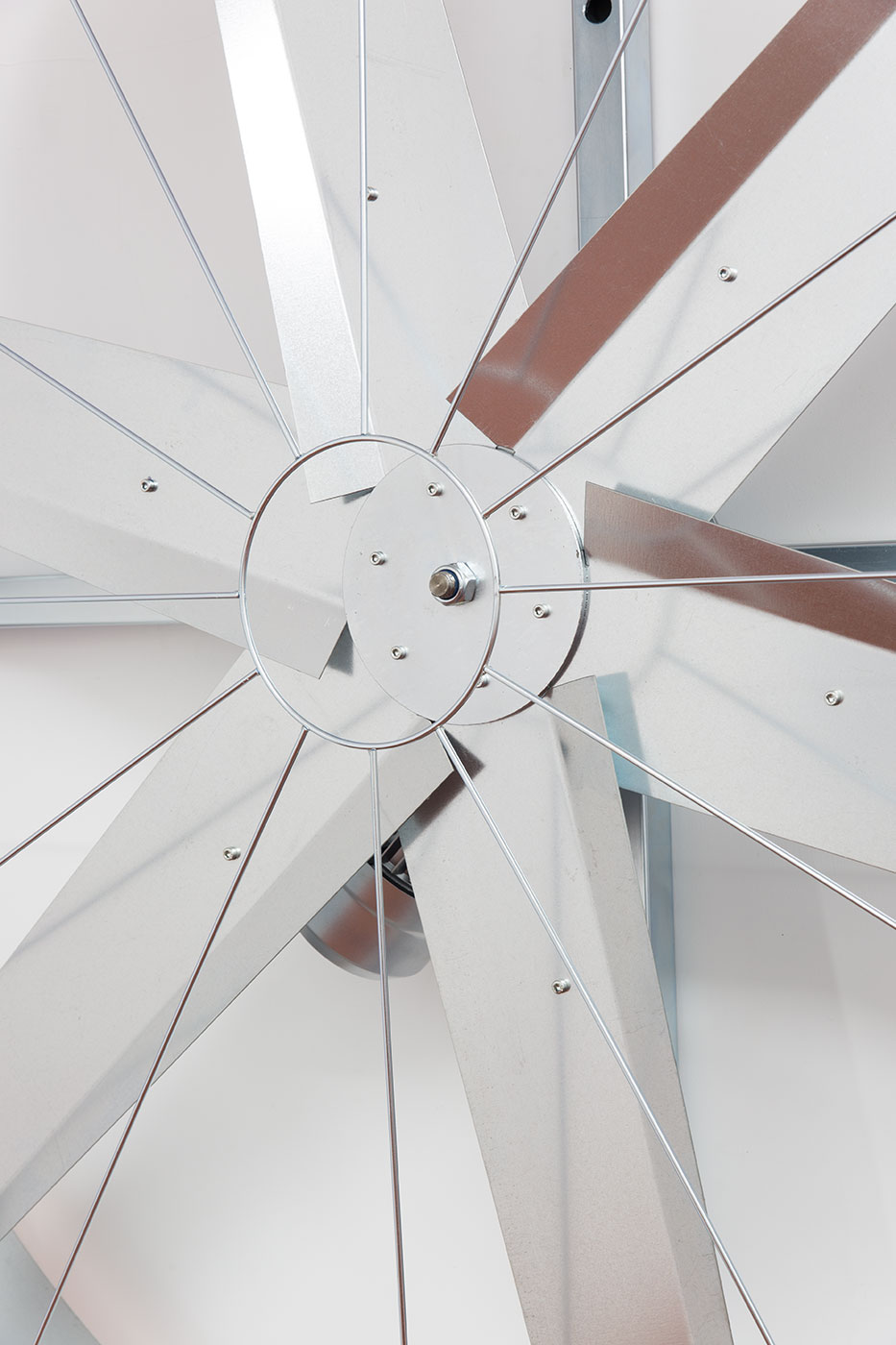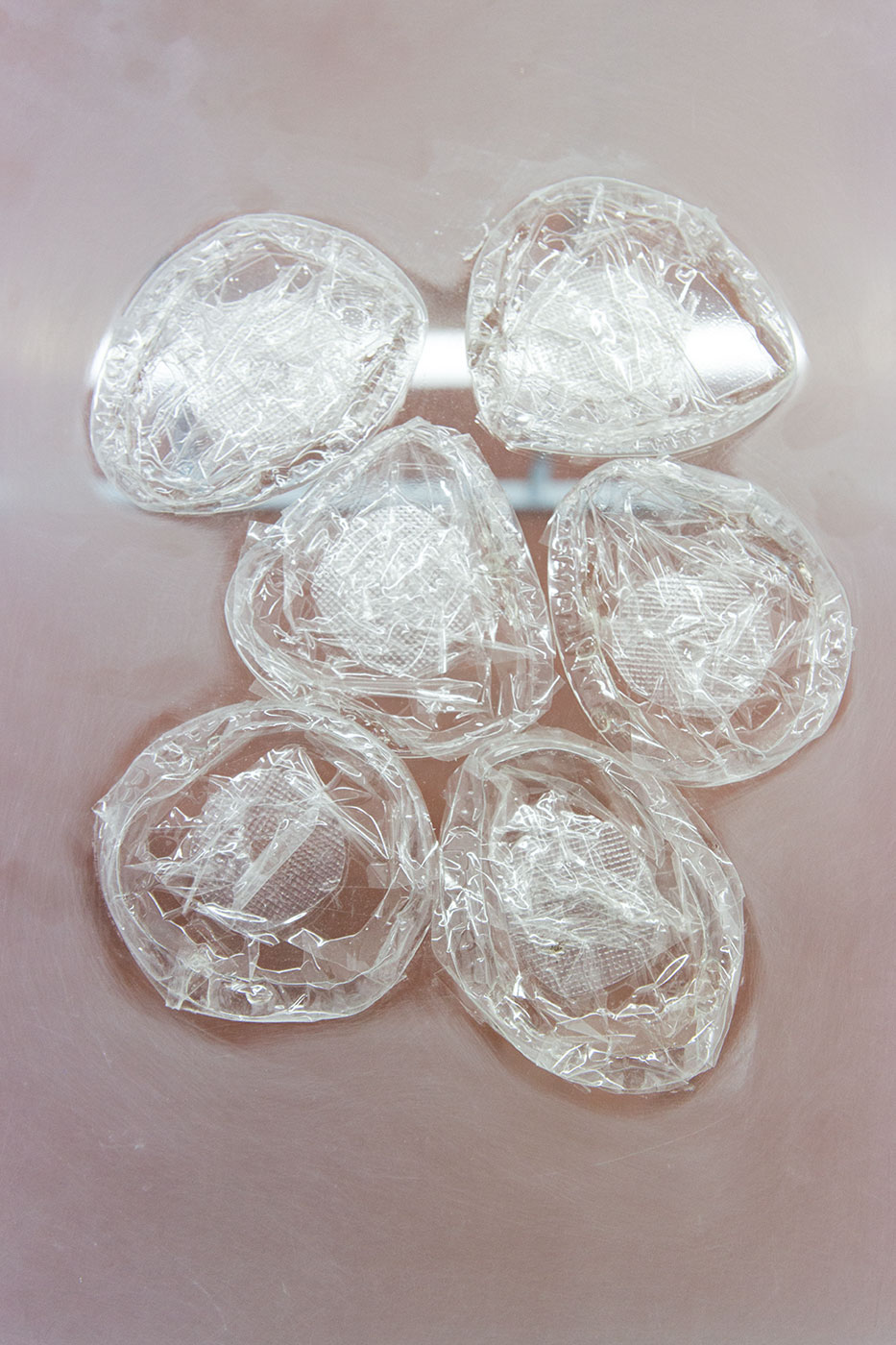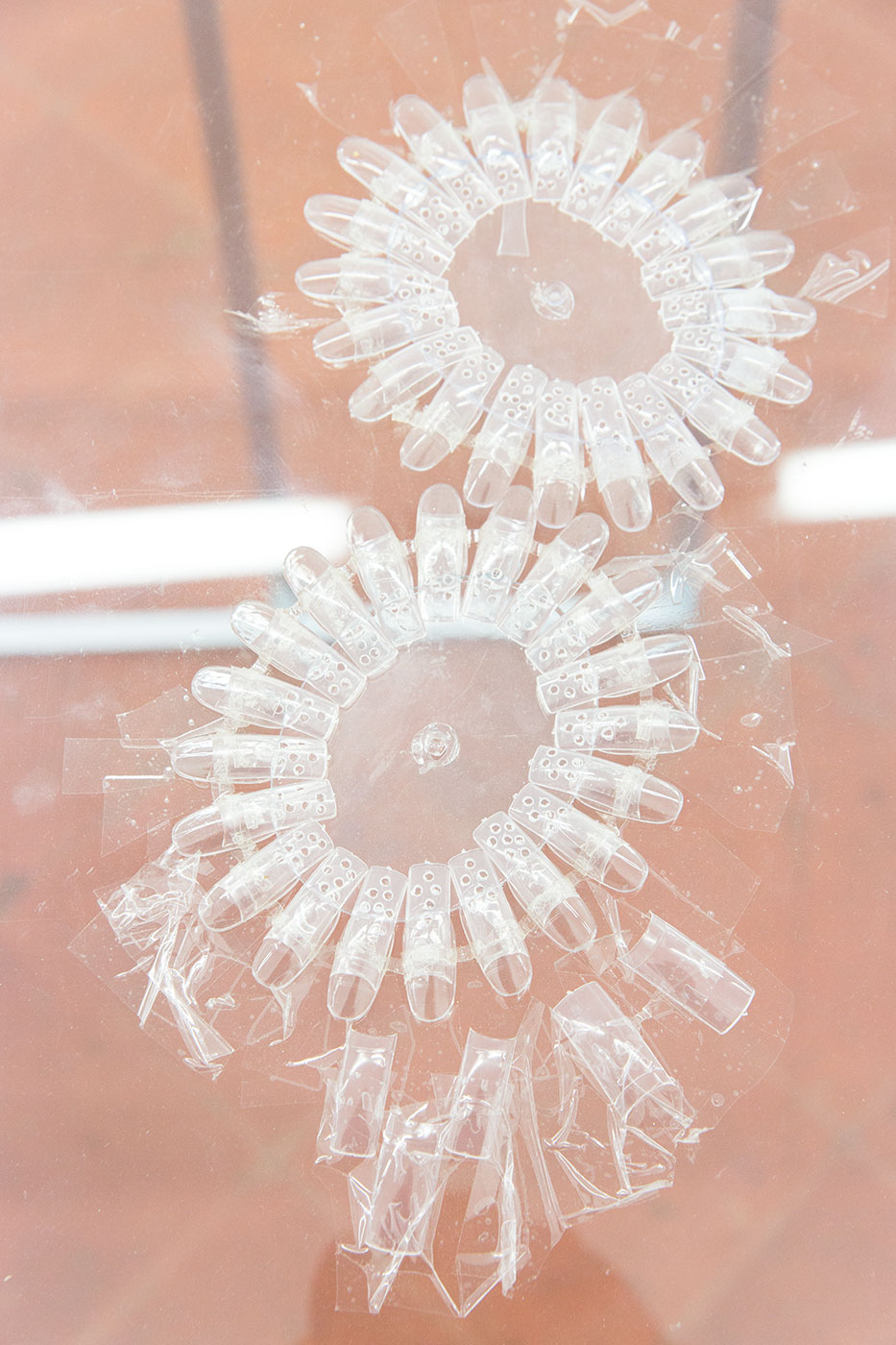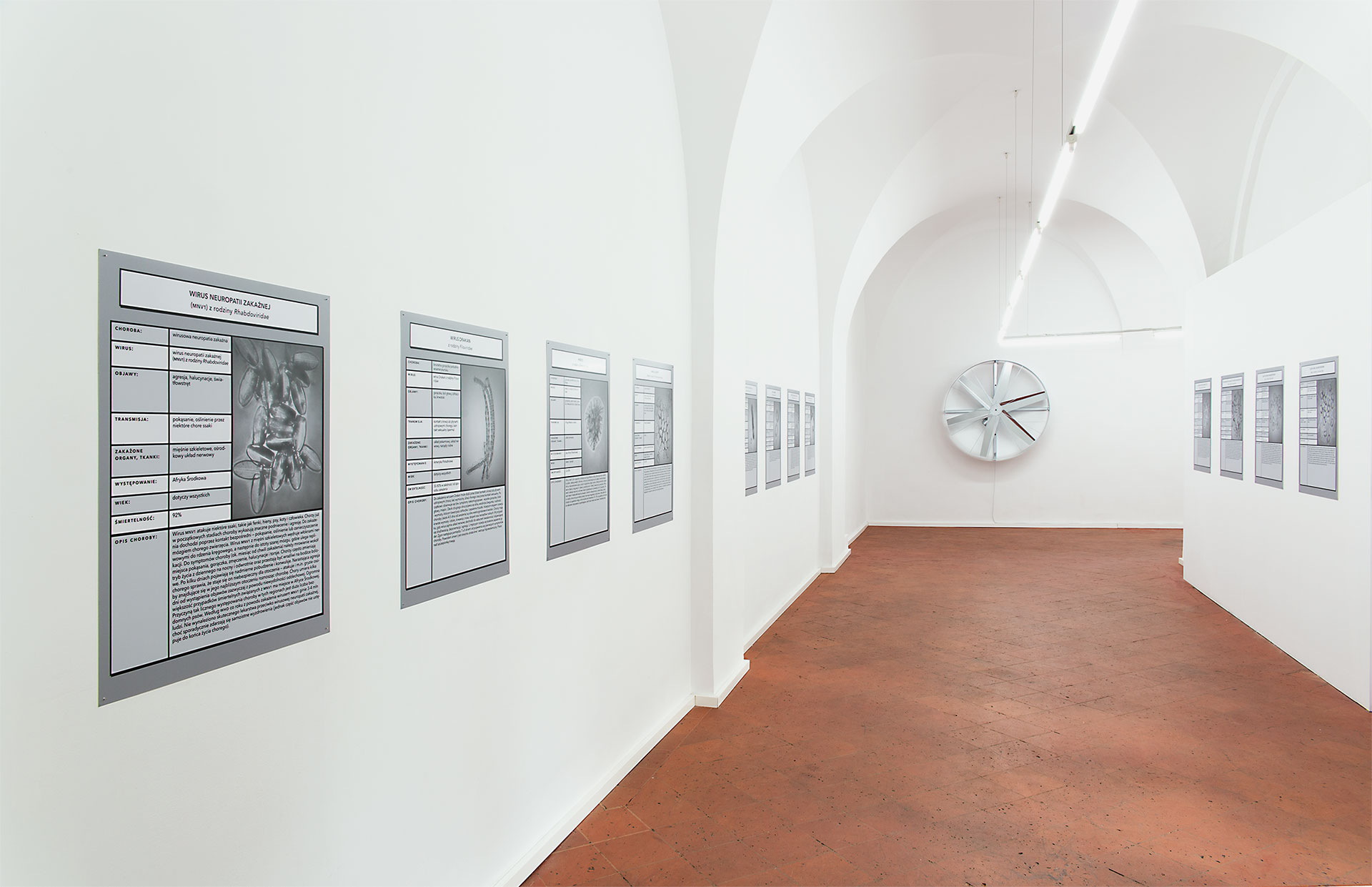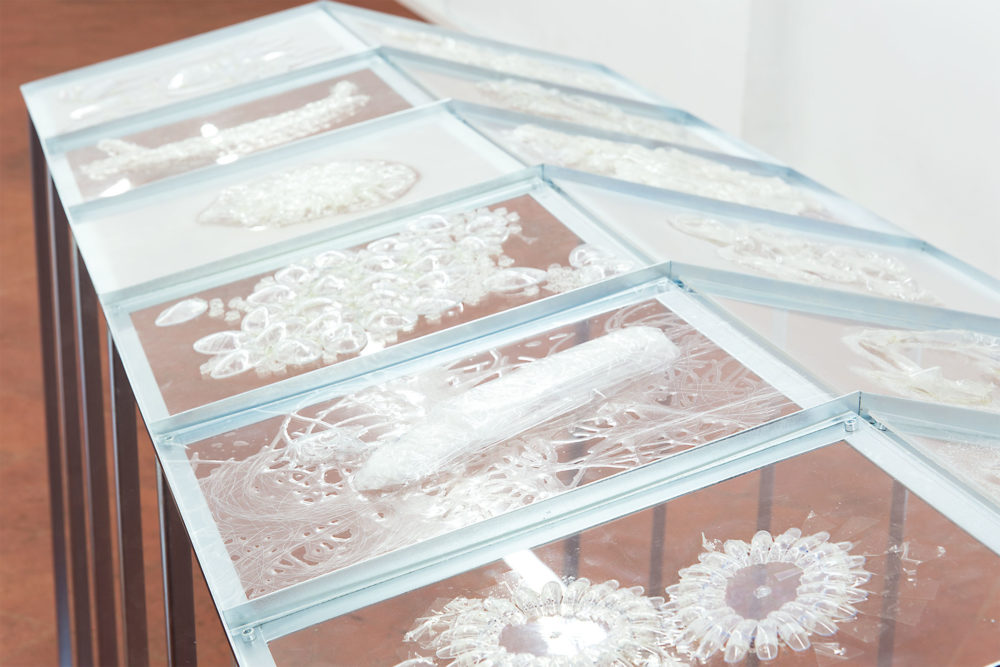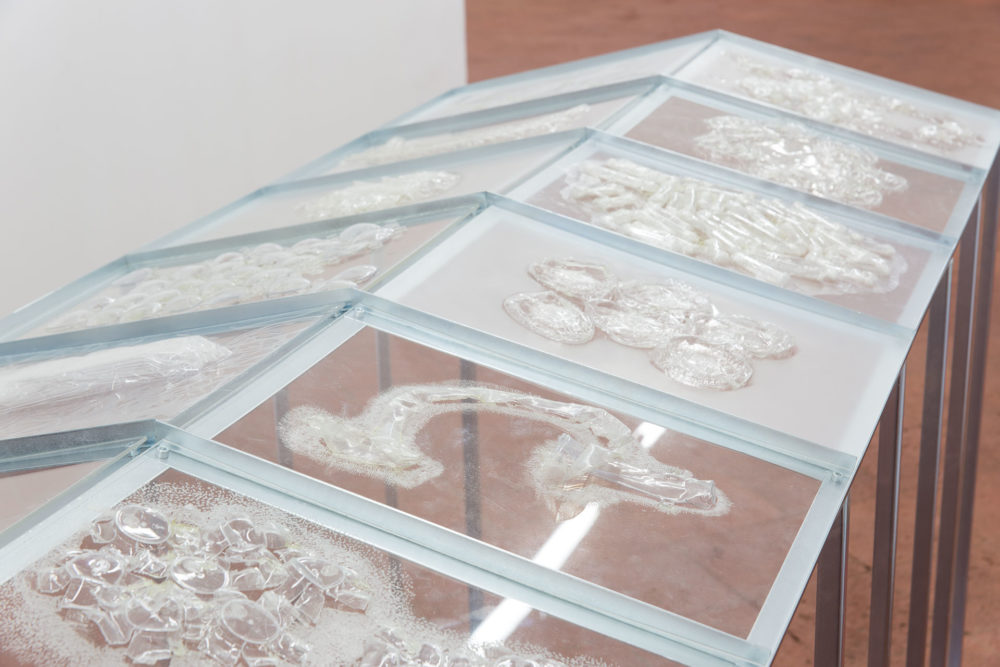Aleksandra Ska, The Pandemic, 2015, Galeria Piekary, photo by Daniel Koniusz
The numbers themselves are scary. In the years 1918-1919, the outbreak of the Spanish flu killed between 20 and 100 million people (it was the third most severe pandemic in history, after the Plague of Justinian and the Black Death). It is estimated that since its outbreak in 1981, the AIDS pandemic has killed around 39 million people. Perhaps it is the horror of numbers that provokes the phantasms that appear in films, literature, and video games. Deserted cities, decaying corpses, the disintegration of societies, the inhuman struggle for survival, and the sad fate of those who managed to survive ― fantasies about the possible consequences of the pandemic create an apocalyptic mood. Popular culture is in its own way involved in the politics of disaster, trying to make us accustomed to phenomena that are unknown, unpredictable, unexpected, and, at the same time, inevitable.
We will find none of the popular and repeated fantasies in the works created by Aleksandra Ska. She plays a perverse game with the politics of disaster. She does not create any vision of the apocalyptic effects of the pandemic. Instead, she gathers and presents evidence. First, we will have to confront the disturbing documentation. At first glance, the images may seem to be abstract compositions. However, the descriptions of the effects of what we can see in the them leave no doubt.
Each of the previous pandemics seems trivial compared to what Aleksandra Ska presents to us. Her works seem to be warning us against a deadly, yet not fully recognized danger lurking somewhere out there. It seems that the artist has got hold of top secret files documenting some of the latest discoveries in the evolution and mutation of microorganisms, or even examples of the latest generation of biological weapons.
The Pandemic by Aleksandra Ska is a meticulously planned exhibition: tension and anxiety increase, until there is a sudden twist. The artist uses the tools of art to ask questions about the role of fiction in science, which leads to another questions. Can the evidence be fake? How should we interpret scientific images? Apart from anxiety, there is an increasing sense of uncertainty. By playing with the politics of disaster, which is an attempt to manage future events (to make us prepared for them), Aleksandra Ska clearly shows one thing: the unexpected will remain unrecognized until it happens.
Aleksandra Ska, The Pandemic, 2015 presented at the exhibition ‘Human-Free Earth’ that was a part of the project entitled ‘Plasticity of the Planet’, The Ujazdowski Castle Centre for Contemporary Art, Warsaw, 2019, photo by Maciej Sierpień.
Aleksandra Ska, The Pandemic, 2015 presented at the exhibition ‘Human-Free Earth’ that was a part of the project entitled ‘Plasticity of the Planet’, The Ujazdowski Castle Centre for Contemporary Art, Warsaw, 2019, photo by Maciej Sierpień.
Infographics, photo by Daniel Koniusz
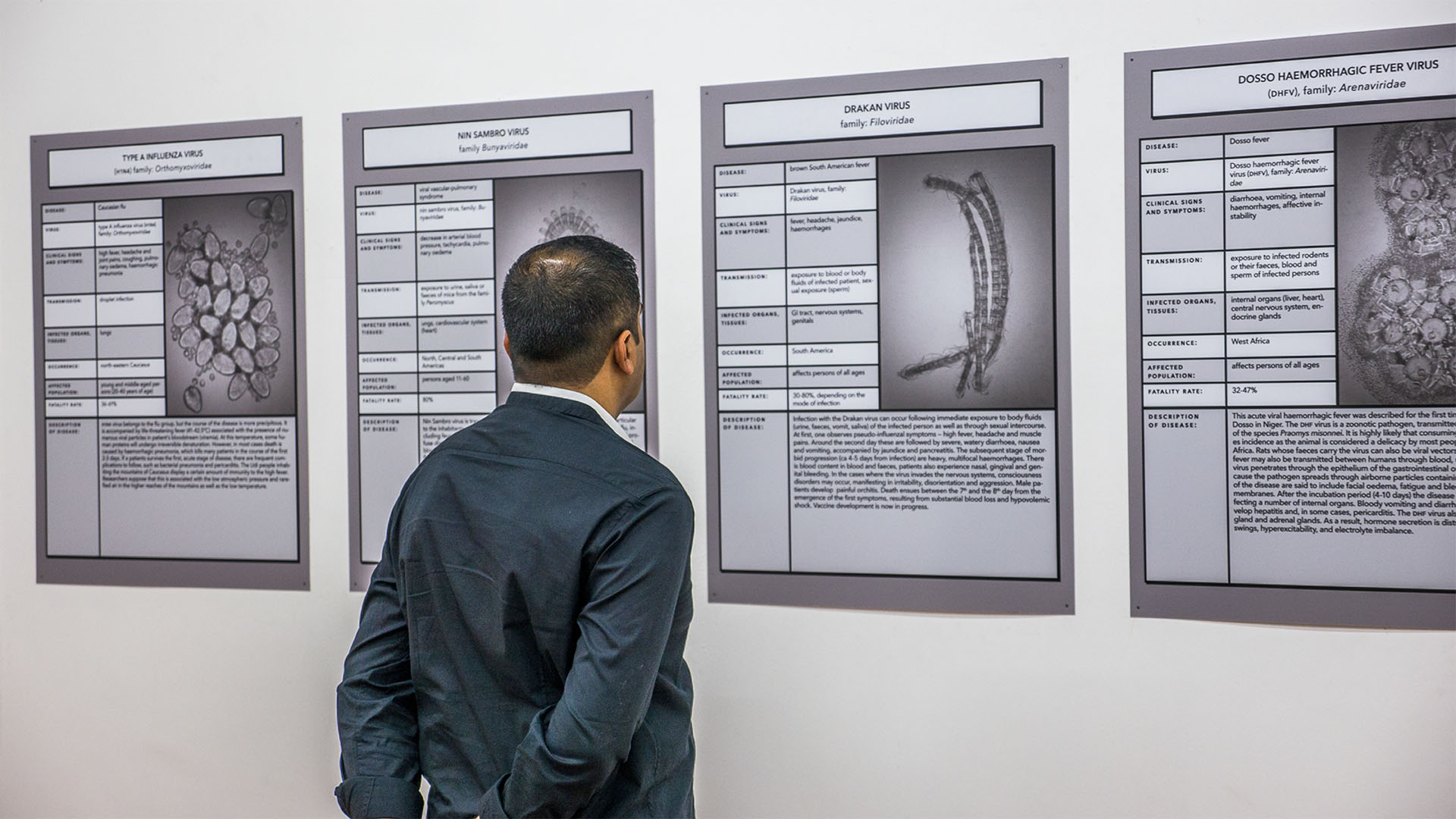
Aleksandra Ska, The Pandemic, 2015 at the exhibition ‘Forming in the Pupil of an Eye’, Kochi-Muziris Biennale, Kochi, India, 2016
At first glance, this project goes far beyond art. It appears as a presentation of research evidence – carefully prepared infographics show the results of the latest discoveries of virology and their possible consequences. Going through the material requires patience but also… courage. It is necessary because the feeling of danger is extremely volatile and any even a minor thing can cause panic. Illustrations featured in infographics are particularly noteworthy, as they turn out to be the turning point of the whole project. The project itself may seem horrifying, and rightly so, because it is a diagnosis of the current situation. Even though the danger is real, the project provokes a question about the role of fiction, both in art and science. The artist poses this question through artistic means, starting from the assumption that in both fields the power of imagination is crucial. Without it, it is impossible to recognize the meaning of the project. The power of imagination makes it possible to interpret fiction as a testimony of reality, even if, at the end of the day, there is a suspicion that the evidence has been precisely staged.
Ultimately, it is difficult to guess whether science uses art, whether art stages scientific evidence, whether scientific knowledge is the starting point for a formal game, or whether artistic practices pretend to be a part of scientific discourse.
What remains is uncertainty. Can we comprehend or try to capture threats that are emerging? This uncertainty has already taken on the proportions of the pandemic.
Jarosław Lubiak
Aleksandra Ska’s project The Pandemic has been exhibited three times: (Galeria Piekary, Poznań, 2015. Forming in the Pupil of an Eye, The Kochi-Muziris Biennale, India, 2017. Human-Free Earth that was a part of the project entitled ‘Plasticity of the Planet’, The Ujazdowski Castle Centre for Contemporary Art, Warsaw, 2019).
This project was created in cooperation with virologists.
Cooperation: dr Maciej Behrendt.
Consultations: dr Jakub Barylski, dr Robert Nawrot, mgr Oskar Musidlak
Adam Mickiewicz University Poznań, Faculty of Biology, Institute of Experimental Biology, Department of Molecular Virology.
Curator: Jarosław Lubiak
Graphic design by: Honza Zamojski
This project was created thanks to the scholarship granted by the Polish Ministry of Culture and National Heritage.
The project is accompanied by a book THE PANDEMIC. Science. Art. Geopolitics. edited by Mikołaj Iwański and Jarosław Lubiak
Aleksandra Ska lives and works in Poznań. She is the head of the Sculpture and Spatial Activities Studio at the Academy of Art in Szczecin. In her works, she undermines socially and culturally established models of gender identity, affective expression, interpersonal relationships, and life roles. Ska treats installations, videos, and object as visual, and sometimes tactable metaphores through which she can transform social and cultural patterns. In her recent works, she confronted the myth of productivity as a category for evaluating people (The Unproductive One), reflected on repression and perversion of touch in art and daily life (Object in Possession), and explored and explored the functions of intense feelings such as love and hatred. In The Pandemic, confronted the global threat of a killer disease, not by creating spectacular images, but by presenting scientific evidence that turned out to be fiction. Even if the evidence is fictional, it proves that a pandemic is inevitable.
Ska’s works have been presented at many group exhibitions ― including: ‘Human-Free Earth’, a part of the project entitled ‘Plasticity of the Planet’, The Ujazdowski Castle Centre for Contemporary Art, Warsaw, 2019. Poza zasadą przyjemności. Afektywne operacje, Narodowa Galeria Sztuki Zachęta, Warszawa (2017), Skip the LINE, Biennale Warszawa, Warszawa, (2018), Forming in the Pupil of an Eye, Kochi-Muziris Biennale, Indie, (2016), Stan życia. Polska sztuka współczesna w kontekście globalnym, National Art Museum of China Pekin, (2015), Kanibalizm. O zawłaszczeniach w sztuce, Narodowa Galeria Sztuki Zachęta, Warszawa (2015), Korespondencje. Sztuka Nowoczesna i Uniwersalizm Muzeum Sztuki Ms2 w Łódź, (2013), Ciepło/Zimno – Letnia miłość, Narodowa Galeria Sztuki Zachęta, Warszawa (2006), Voyage Sentimental w ramach Mediations Biennale, Muzeum Narodowe w Poznaniu (2008), Kolekcja Sztuki ⅩⅩ i ⅩⅩⅠ wieku szkic 3: poza zasadą rzeczywistości, Muzeum Sztuki w Łodzi (2008).
Her most significant individual exhibitions include: ‘Object in Mirror Are Closer than They Appear’, Galeria Piekary, Poznań (2009), ‘Kitchen Dynamite’, Office d’art contemporain, Brussels, Belgium, (2010), ‘The Pandemic’, Galeria Piekary, Poznań (2015).
Ska is a three-time recipient of the scholarship granted by the Polish Minister of Culture and National Heritage. In 2011, she was an artist-in-residence at the Egon Schiele Art Centrum in Czech Republic. In 2013, she participated in a residency programme offered by Triangle Art Association in New York City.
